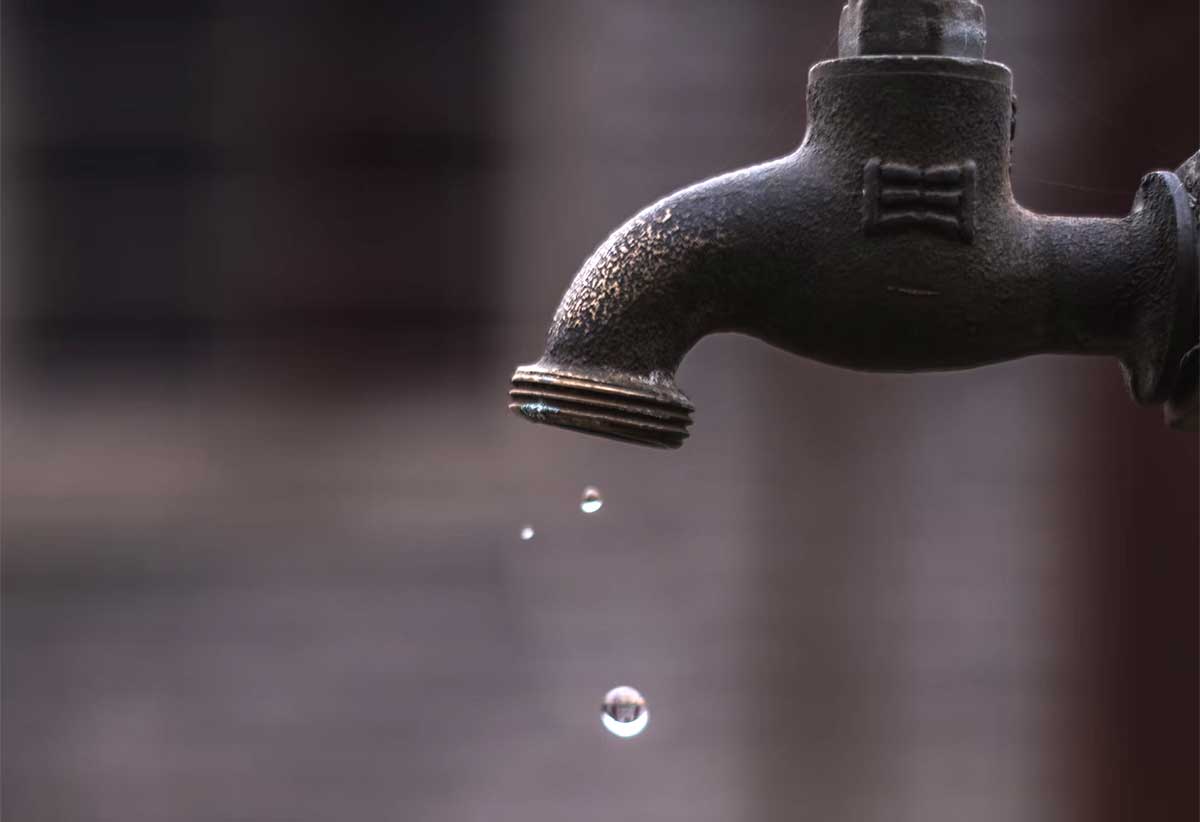
In light of the prevailing water situation in the country and the need to ration water supply, the Ministry of Health and Wellness has provided guidance in relation to the water-related emergency declared by the Water and Sewerage Company Inc. (WASCO), last week.
It is reported that critically low levels of water have prompted WASCO to declare a ‘Water Related Emergency.’ The decision to declare a water-related emergency was taken in collaboration with the Ministry of Agriculture, after being approved by the Cabinet of Ministers.
Consequently, WASCO has issued guidelines to conserve potable water. And notably, anyone found in violation of these regulations can be fined or imprisoned.
WASCO’s Chief Executive Officer , Zilta George-Leslie stated that the absence of rain and increasing hot conditions necessitate a dry season management and action plan.
“The issue of this application of a declaration is as a result of exceptional shortage of rain throughout the island and a serious deficiency of supplies of water, which is affecting the entire island,” she said.
“The declaration of the Water Related Emergency requires prompt coordination of action or special regulation of persons or property to reduce wastage of potable water,” George-Leslie said.
WASCO’s CEO further disclosed that this declaration approved by the cabinet of ministers, urges citizens to restrict the use of potable water for non-potable uses.
Leslie-George added: “WASCO recommends essential usage as water that is necessary to sustain human lives and the lives of domestic animals, and to maintain standards of hygiene and sanitation.”
She explained that once the order was published in the Gazette, anyone found in violation could be fined up to $3,000 and face up to six months in prison.
Reports indicate that this is the fourth time in ten years that a ‘water related emergency,’ is being declared. The last time , it was in 2020, when the country faced a similar low water intake. WASCO’s CEO says the difference, this time, is that it is worse.
“As of Tuesday, May 14, the John Compton Dam reported water levels of 318.6 feet, which is some 14.4 feet below our spillway dropping six inches per day,” she explained.
George-Leslie said the Hill 20 system, located in the Babonneau community, has shown a reduction of 50%; while the southern intake reduction ranges from as low as 29% in Tomazo, to as high as 80% in some areas, including Belle Vue, upper Saltibus and lower Saltibus areas.
WASCO recommends island-wide water sharing through a comprehensive valving system, as well as, trucking water to certain areas. Consumers are urged to take these declarations seriously, and to desist from pressure washing, block mixing, watering of plants and other non-essential activities.
Meanwhile, the ministry is disseminating information to reduce the possible associated health risks, potential impacts, and provide essential safety measures to mitigate adverse effects.
A ministry spokesperson stated that, the current water-related emergency and shortage presents several health hazards that citizens must be vigilant about.
The primary concerns listed are,as follows:
– Waterborne Diseases: Contaminated water sources can lead to the spread of waterborne diseases such as gastroenteritis. These illnesses pose severe risks to public health and require immediate attention and preventative measures.
– Dehydration and Heat-Related Illnesses: Water scarcity may result in dehydration and increase susceptibility to heat-related illnesses, especially among vulnerable populations such as the elderly and children. Prolonged exposure to high temperatures without access to clean water can lead to heat exhaustion and heatstroke.
– Sanitation Issues: Insufficient access to clean water compromises basic hygiene practices, increasing the likelihood of sanitation-related health issues such as skin infections, respiratory infections, and vector-borne diseases.
To mitigate the health risks associated with the water-related emergency, the Ministry of Health recommends the following safety tips and precautionary measures:
– Boil Water Before Consumption: When boiling ensure that all drinking water comes to a rolling boil to eliminate potential pathogens and contaminants. Alternatively, utilize bottled water from trusted sources.
– Practice Proper Hygiene: Maintain good hygiene practices by washing hands thoroughly with soap and clean water, especially before eating or preparing food, and after using the bathroom.
– Stay Hydrated: Drink plenty of fluids to prevent dehydration, particularly during hot weather conditions. Opt for bottled water or properly treated water sources.
– Monitor Symptoms: Be vigilant for symptoms of waterborne diseases, heat-related illnesses, or any other health concerns. Seek medical attention promptly if symptoms arise.
– Conserve Water: Implement water conservation measures to reduce strain on existing water resources. Use water sparingly and avoid wastage wherever possible.
– Seek Assistance if Needed: Vulnerable individuals, such as the elderly, children, and individuals with pre-existing health conditions, should receive special attention and support during this time. Community support systems and healthcare facilities are available to help if needed.
The Ministry of Health and Wellness emphasizes the importance of proactive measures in addressing the current water-related emergency. By staying informed, practicing precautionary measures, and adhering to recommended safety guidelines, citizens can safeguard their health and well- being during this challenging period.













